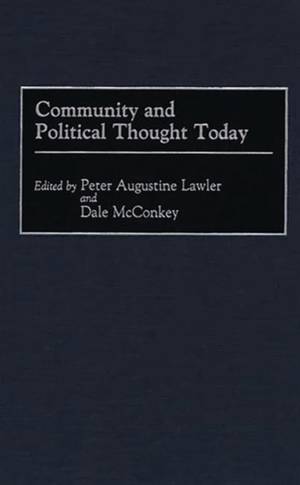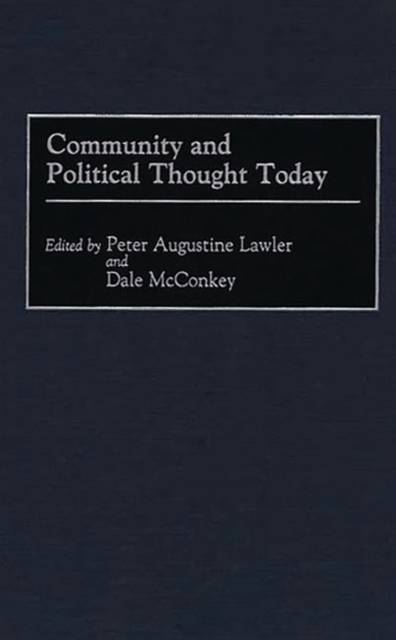
- Retrait gratuit dans votre magasin Club
- 7.000.000 titres dans notre catalogue
- Payer en toute sécurité
- Toujours un magasin près de chez vous
- Retrait gratuit dans votre magasin Club
- 7.000.0000 titres dans notre catalogue
- Payer en toute sécurité
- Toujours un magasin près de chez vous
161,45 €
+ 322 points
Description
There is a crisis in America revolving around social and political life, and the contributors to this essay collection believe it has provoked a renewed attention to the issue of community in political thought. The 14 essays approach the question of community and political thought from a variety of perspectives, ranging from political philosophy to social theory. All the essays, however, share the concern of the opening essay by Hertzke and McRorie about moral ecology, or determining what is required for a vital and free social and political life and preserving it from erosion by individualism in its various forms.
Two of the essays, by Jardine and Stier, deal with understanding the communitarian impulse. Three, by Frohnen, Stone, and Woolfolk, evaluate perhaps the first major contribution to the communitarian movement, Habits of the Heart. While McClay's chapter seeks to restore the connection between federalism and communitarianism, Sharpe's essay connects the liberal-communitarian debate to the classic works of de Tocqueville and Arendt. Two essays, by Knippenberg and Lawler, criticize the quirky communitarianism of America's leading professor of philosophy, Richard Rorty. Lawler also criticizes Bloom for his similarity to Rorty, joining Nichols in her discussion of Bloom's excessive debt to Rousseau. McDaniel and Mahoney present unfashionable appreciations, not without criticism, of the achievement of Leo Strauss's illiberal if not exactly communitarian thought. Finally, Anderson discusses Raymond Aron's prudent opposition to the oxymoronic global community. This is a unique and significant collection for all students and researchers interested in contemporary social and political thought.Spécifications
Parties prenantes
- Auteur(s) :
- Editeur:
Contenu
- Nombre de pages :
- 256
- Langue:
- Anglais
Caractéristiques
- EAN:
- 9780275960964
- Date de parution :
- 30-09-98
- Format:
- Livre relié
- Format numérique:
- Genaaid
- Dimensions :
- 165 mm x 243 mm
- Poids :
- 589 g

Les avis
Nous publions uniquement les avis qui respectent les conditions requises. Consultez nos conditions pour les avis.






